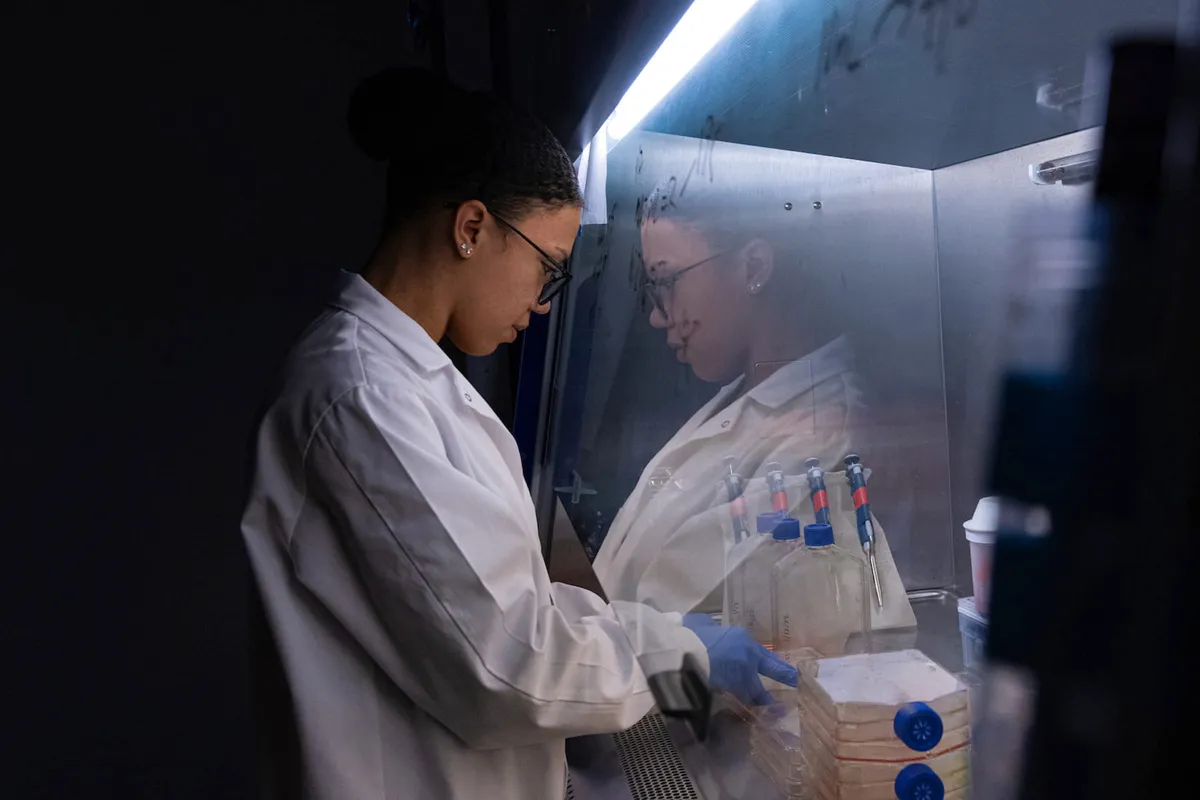Researchers have found a way to implant a ‘drug factory’ into mice that bolsters the immune system in its fight against cancer. The team, from Rice University, Houston, USA, say these factories could one day be used to administer drugs to treat other illnesses, like diabetes or even COVID-19.
In their recently published study, the team showed that the implants could eliminate ovarian and colorectal cancer in mice less than one week after they were administered.
The implanted capsules work as a miniature factory, regularly creating and releasing doses of a compound called a cytokine, which is naturally produced in the body to tell the immune system when and where to work.
“We just administer once, but the drug factories keep making the dose every day, where it’s needed until the cancer is eliminated,” said co-author Prof Omid Veiseh, a cancer researcher at Rice University.
“Once we determined how many factories we needed [to implant] we were able to eradicate tumours in 100 per cent of animals with ovarian cancer and in seven of eight animals with colorectal cancer.”
The spherical factories are made up of two elements. The outer layer is comprised of a polymer compatible with the human body, which encapsulates an inner factory of human-derived cells that produce cytokines once implanted in the body. The sphere is porous, allowing all the nutrients the cells need to get in and enabling the cytokines to get out and target the cancer.
Helping the body's immune system
"Cytokines are small cellular messengers that are used in the body to communicate between cells and the immune system. In the case of the ovarian cancer, often the immune cells get suppressed or silenced, or just exhausted," said Amanda Nash, a PhD student in the Veiseh lab and first author of the new study.
"[Cytokines are] pro-inflammatory, so they remind the immune system of the message [to fight the cancer]. They activate or boost the immune response. And so by delivering them [via the drug factories] we're able to sort of kick the immune system into hyperdrive."
The team looked for evidence that the drug factories had activated the immune system by monitoring numbers of T cells, which are produced by the body when fighting a disease.
"These are essential to the therapy working in our mouse studies, and we saw that there was indeed activation of the T cells. And, most importantly in our primate studies, there were no evaluated toxicities. Each dose was well handled by the primates, suggesting that it would be a great candidate for moving forward into clinical trials."
Read more about cancer research:
- Sniffer ants can smell cancer better than dogs
- mRNA vaccines: How COVID jab tech will teach our bodies to kill cancer
Current cytokine-based treatments are given via an injection into the blood of a patient. However, many people receiving this treatment also have severe side effects.
"In the case of intravenous administration, you would just inject somewhere into the veins and then [the treatment] would travel via the bloodstream throughout the entire body. That's, in part, what leads to some of the toxic side effects that are commonly experienced from these type of therapies," said Nash.
"But here, by physically administering the capsules right next to the tumour, we're able to get really high concentrations of the cytokines just where it's needed."

The next step for the team is to test the drug factories against other cancers. Moving upwards in the body, they are now looking at lung cancers. But their research holds potential therapies for many other conditions.
"Cytokines were being testing for efficacy in this case, but the real insight [for us] of the platform is that in theory, any small molecule could be could be produced by the factories," said Nash.
"If you can get the cells to produce the desired molecule and it's small enough to diffuse out of the pores, then the sky's the limit. That's really the beauty of the platform."
